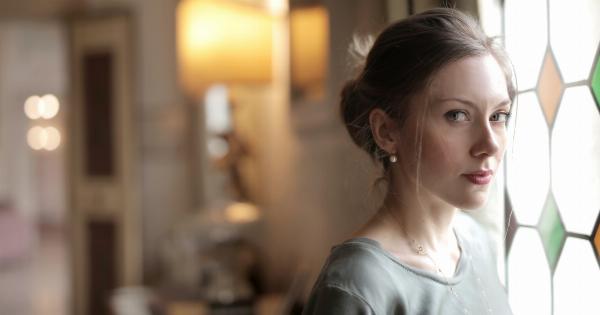Age has always been a topic of interest when it comes to relationships and preferences. Whether in the dating world or in long-term partnerships, people often wonder about the age range that men prefer in women.
While personal preferences may vary widely, several factors can influence the age range favored by men. In this article, we delve into the dynamics of attraction, societal norms, and statistical data to discover the age range preferences of men.
1. Biological Factors
Biologically, men are often attracted to women who exhibit signs of fertility. In evolutionary terms, men may be more inclined to choose partners who are capable of bearing healthy offspring.
Thus, in terms of reproductive potential, men may prefer women who are in their prime reproductive years, typically between the ages of 20 and 35. However, it is important to note that these preferences can vary and are not set in stone.
2. Cultural and Socioeconomic Influences
The age range preferences of men can also be influenced by cultural and socioeconomic factors. Societal norms often play a significant role in shaping these preferences.
In some cultures, there may be a preference for younger women due to traditional gender roles, beliefs about fertility, or the perception of youthful beauty. Additionally, the socioeconomic status of men can impact their preferred age range. Men with high social status or wealth may seek younger partners as a means of showcasing their success or power.
3. Psychological and Emotional Connections
While physical attractiveness and fertility cues may initially drive preferences, men’s attraction to women is not solely based on these factors. Psychological and emotional connections also play a crucial role in relationship dynamics.
Men may seek women who they believe can understand and relate to their experiences, regardless of age. Shared interests, values, and emotional compatibility often overshadow the age factor when forming deeper connections.
4. Relationship Expectations
Another important consideration is the specific relationship dynamic that men are seeking. Some men may favor casual relationships and prioritize physical attractiveness over age.
On the other hand, men seeking more serious and long-term commitments may lean towards partners who are closer in age, sharing similar life goals and experiences. Relationship expectations can greatly impact the age range preferences of men.
5. Health and Vitality
Men are generally attracted to partners who exude health and vitality. Youthfulness is often associated with these attributes, which can influence men’s preference for younger women.
Youth can signify physical fitness, energy, and fewer signs of aging. However, it is essential to remember that women of all ages can lead healthy and vibrant lives, and attraction is subjective, varying between individuals.
6. Statistics on Age Preferences
Various studies have attempted to shed light on the age range preferences of men through statistical data. Research indicates that men’s preferred age range generally spans between five to ten years younger than themselves.
However, these findings are not without exceptions, as preferences can differ widely among individuals. It is crucial to interpret statistical data with caution, understanding that personal preferences may deviate from the norm.
7. Evolving Social Norms
Social norms surrounding age and relationships continue to evolve over time. While there was once a time when large age gaps between partners were more common, societal attitudes have shifted in recent years.
Today, relationships with significant age disparities are often met with criticism or scrutiny. With the increasing focus on equality and shared experiences, men’s preferences may lean towards partners who are closer to their own age.
8. Emotional Maturity and Life Stage
Emotional maturity and compatibility also influence men’s age range preferences. Some men may seek partners who are at a similar life stage, sharing similar experiences and emotional maturity.
Age can often be a rough indicator of life stage, but it is important to recognize that emotional maturity can vary greatly among individuals. Compatibility is a complex aspect of any relationship and extends beyond age alone.
9. Overcoming Age Stereotypes
It is crucial to challenge and overcome age stereotypes when discussing the age range preferences of men. Age is just one aspect of a person’s identity and should not define their worth or desirability.
Women of all ages have unique qualities and strengths that can make them attractive to men. Respect and understanding of individual preferences while embracing diversity are essential for healthy relationships and societal progress.
10. Conclusion
When it comes to the age range preferences of men, multiple factors come into play. Biological, societal, and personal influences all shape these preferences.
While statistical data may offer some insights, it is important to recognize that personal tastes can vary greatly. Genuine connections, emotional compatibility, and shared values often outweigh age considerations for many men.
By acknowledging the subjective nature of attraction, we can celebrate diverse relationships and appreciate women of all ages for their unique qualities.































